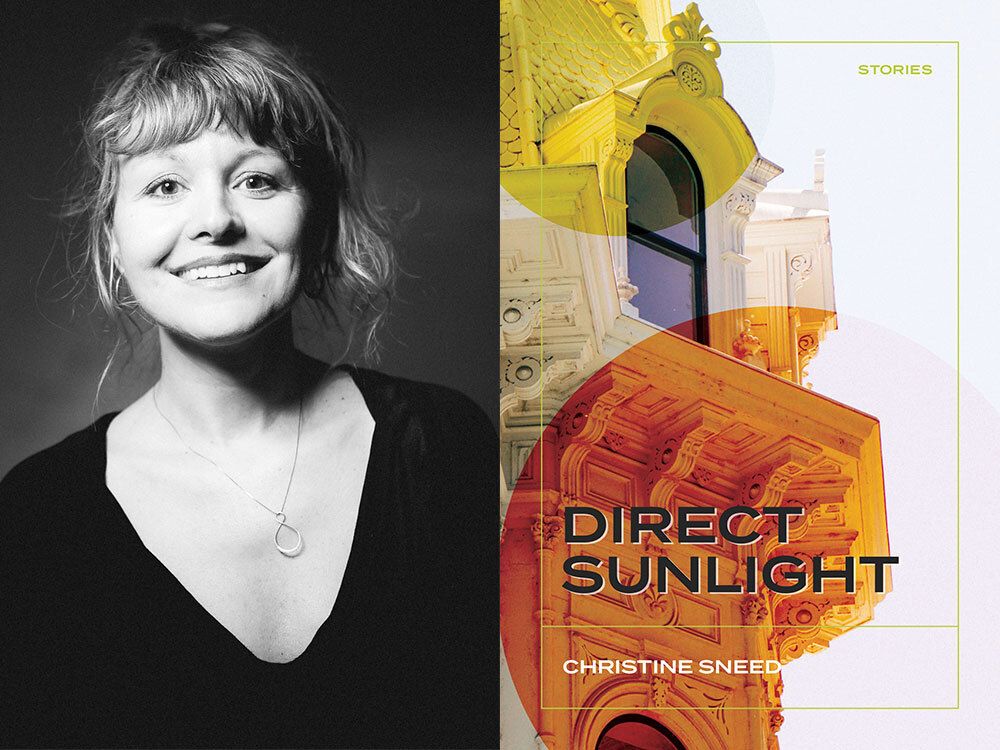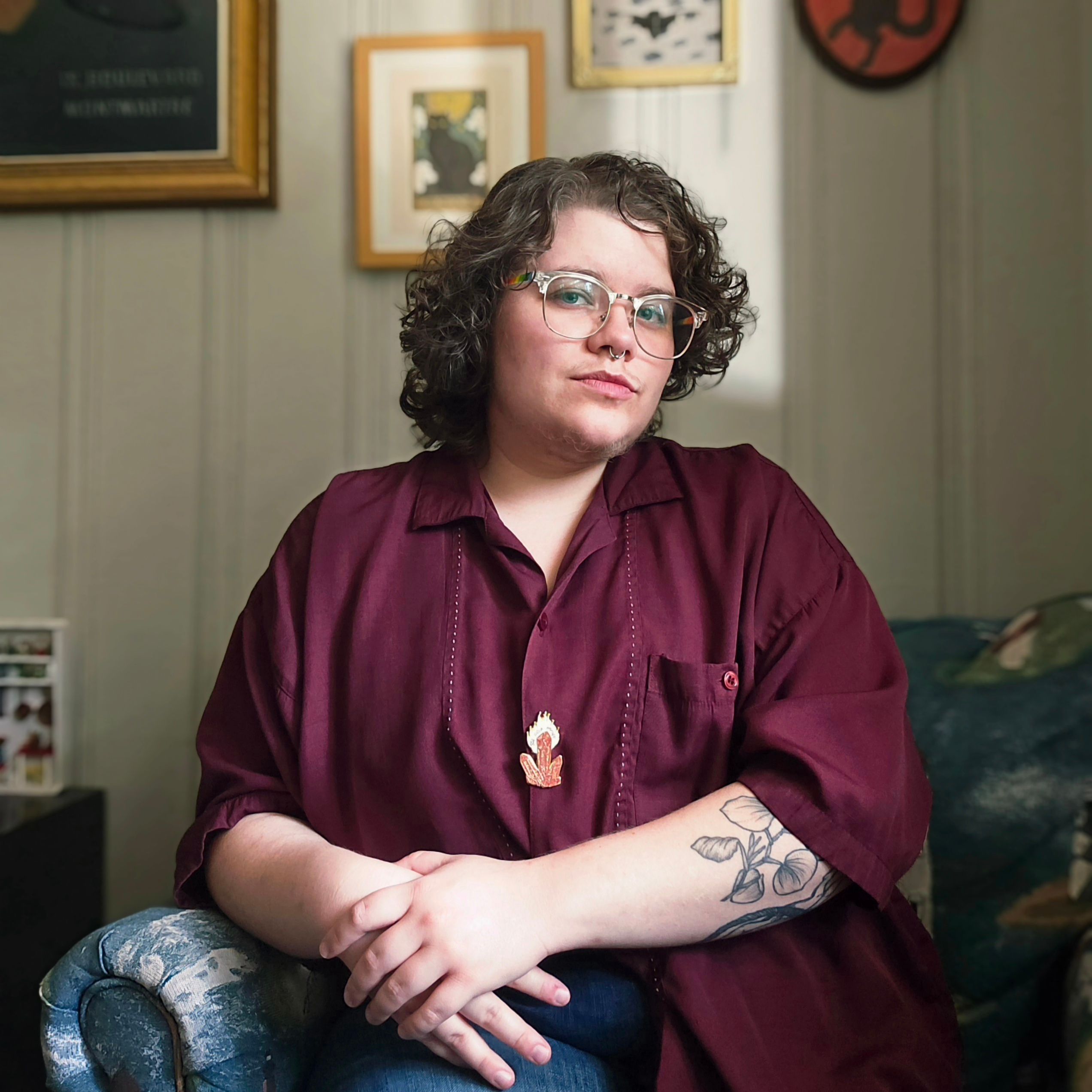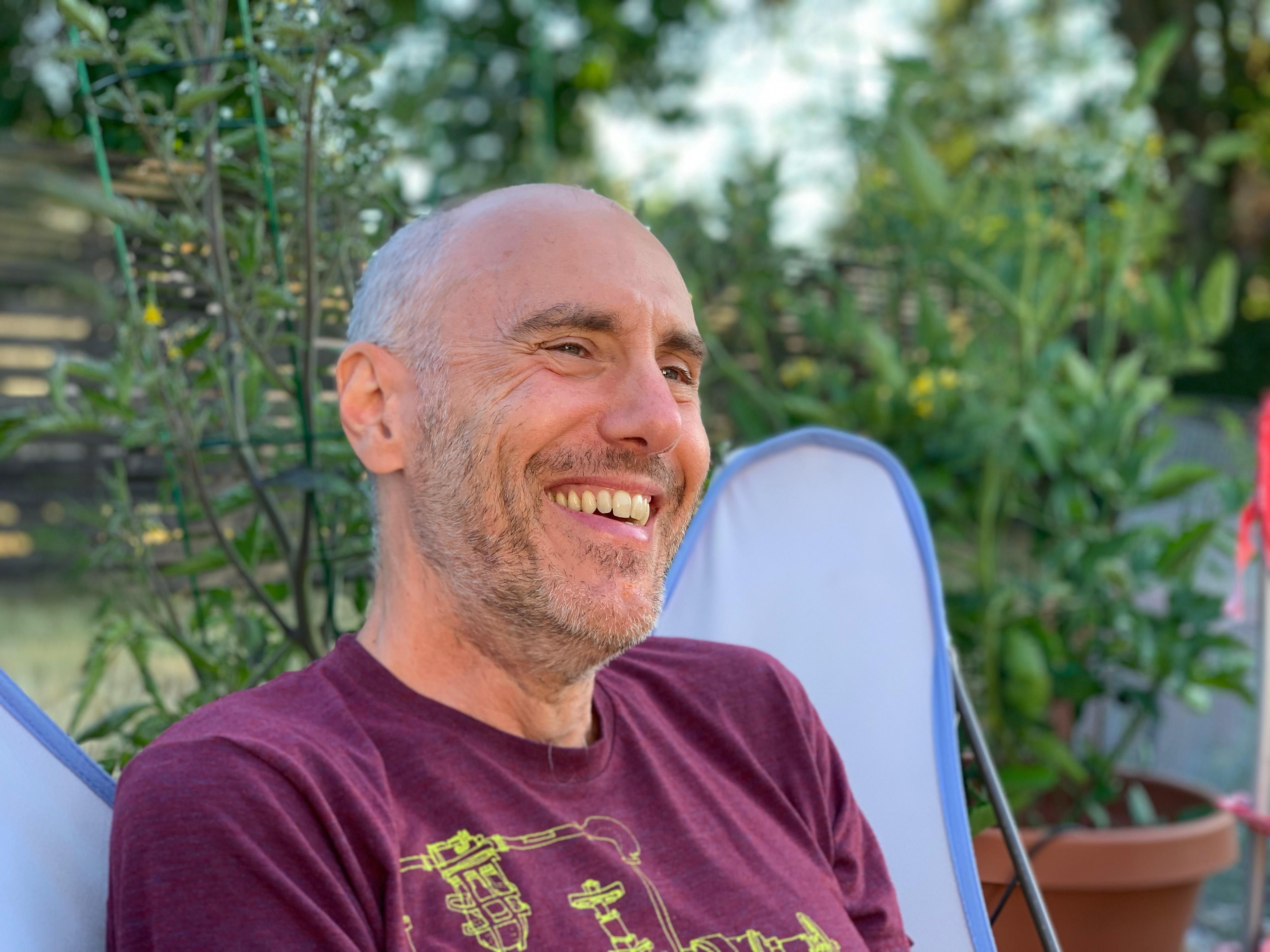Eleonora Natilii: Can you tell me a little bit about the reasons behind the stories in this collection? How did they find you? Did you make them up from scratch, borrow them from friends or take a “what if” path at one of your own life’s crossroads? What attracted you to them?
Christine Sneed: All of the stories in Direct Sunlight, with the exception of one which has a few elements based on some events from a while ago, are wholesale works of fiction. I often begin with a title, and from there, I’ll write the first few lines of the story. With any luck, the voice of the POV character emerges and I let the narrative unspool as naturally as I can.
I’m always interested in what self-knowledge does to a person—I’d say this is the element that keeps me writing, i.e. now that X has happened, what will you do? It’s this tension that keeps me engaged when I’m working on something new. It’s the moment when characters have to face something unpleasant about themselves that I’m always writing toward. I want to know what they’ll do with the kind of self-knowledge they wished never to have been confronted by.
EN: Family dynamics are almost always at the core of Direct Sunlight. When looking at them, we sense that much of the trouble has to do with asking and giving, and the expectations associated with these two things. Some characters give or ask too much, and some characters have reasonable demands but still won’t receive what they should. Is this an aspect of family life that you consciously explore or is it a space that you just find yourself wandering through, over and over?
CS: I think it’s probably, as you describe it, a space I find myself wandering through over and over. So much of who we are is shaped by how we were raised, and by whom, and by how we continue as adults to interact with and think about our family members, whether we came from a big or small family, were raised in a foster home, an orphanage, or on a commune.
As we grow up and leave home, or else never leave, we change, and so, often, do the people we grew up around. I think family ties, grievances, grudges, feelings of sorrow or loss—they’re such evocative subjects for fiction.
EN: Reading this collection, one has the feeling that nothing is ever safe from change. Instead of picturing it as the long awaited wave that never comes, you give us a notion of change as something that unexpectedly messes everything up and from where there is no going back. Do you see life as a betrayed promise of stability? Or do you think that life is mostly routine and stability, and hence you like to play with characters who see that stability taken away from them?
CS: I do think life is characterized in no small part (and for some of us, bedeviled) by routine—every day, the vast majority of us get out of bed, go to work or school, and later return home to do more routine tasks before bed, only to start the whole series of events over again the next day, with little variation.
But what we often remember most, what we look back on, are the events that break up the routine—the ceremonies, the illnesses and accidents, the vacations, road trips, parties, surgeries—and the sense of loss that encroaches as we age. I think I’m always writing about loss and loneliness in some way. They are among the great, inescapable subjects of character-driven fiction.
EN: What is your relationship to style and language? Do your sentences flow out of the pen almost exactly the way we read them or do you need to go back and polish them several times before you like what you're reading?
CS: I’d say it’s a mix of both. Many sentences do, fortunately, arrive on the page in more or less finished form, but there are others where I cut words or change modifiers and verbs, rearrange dependent clauses, pare down anything that strikes me as repetitive. This tinkering often goes on until the story is being edited for publication.
I was a poetry MFA, and by reading and writing poems for a number of years in my early formation as a writer and having been taught to train a severe eye on each word in a poem, I think I learned to be a fiercer critic of the fiction I was writing in graduate school and beyond.
EN: Reading your stories feels like looking at a Polaroid; a snapshot of a moment in someone’s life. How do you choose, or sense, your endings? Do you always mean to leave the stories open or is it something you find yourself doing time after time?
CS: One thing I love about character-driven fiction is the fact it aims to mirror life as we experience it. Regarding endings, real life doesn’t often offer us closure or neat conclusions, and in my stories, I’m trying to mirror this reality too. I often tell students to end on an image when they’re having trouble landing the proverbial plane of a story or poem.
EN: Throughout this collection, I've often had the feeling that humor and self-irony are the only kind of mercy we can get for free, either from others or from ourselves. What do you think of this?
CS: I love the idea of humor and irony, self-effacing irony especially, this being the only mercy we can get for free. Yes, I think this is an excellent way of saying that we have to find the humor in our lives, because there is a lot of sadness that will from time to time floor us.
I’m far from my twenties now, and I find myself thinking more and more about the days when I was much younger, when my friends and my parents and other family members were also of course much younger. If you live long enough, you will for sure lose a lot—the people you love will die, your body will start to wear out, you’ll be marked as an aging if not an old person, someone dismissed by the young, the media, many of the purveyors of our cultural artifacts and consumer goods, at least in the United States, which unapologetically and damagingly, worships youth.
EN: Each of your stories is set in a specific place, and sometimes even a specific moment in the place's history. Do you use geographical elements from your own life as a source of inspiration and accuracy or is there another reason behind these choices?
CS: I do generally write about places I know well. All of the stories in this book are set in cities or small towns where I’ve lived or else have spent quite a lot of time in. I am inspired by these places and for that reason, I try to write about them as precisely and lovingly as I can.
EN: Do you think that the relationships between your characters and their animals mirror humanity's ambivalent behavior toward nature? The need for it to soothe the pains of the soul and, at the same time, the willingness to harm it in order to fulfill a need?
CS: That’s a thought-provoking question, but I don’t think it’s why I include non-human characters in my stories. Animals likely have deeper emotions than I suspect many of us want to believe, and I love their guilelessness—they make great characters. I stopped eating animals and other creatures—anything with eyes—six years ago in part because I felt both strong affection and sorrow for them and the fact we kill them in astronomical numbers each year. No surprise, it’s hard for me to read fiction or nonfiction where animal cruelty is a part of the story, and there certainly is a lot of it the world over.
In general, I think of my animal characters as much like my human ones, except they can’t talk. My mother is a veterinarian, and so animals were a central part of my formative years. It’s a pretty safe bet that if an animal appears in one of my short stories, I’m going for both comedy and pathos.
EN: One of the characters in “Wedding Party” is a psychic. Do you believe in the notion of fate, or karma, or any other idea crossing over and reaching beyond luck, freewill and randomness?
CS: I don’t think I’ve ever been asked this question before—at least not in a literary interview—so interesting to consider. I believe, more or less, in the idea that people do affect the world and the events of their lives with their energy, i.e. their general way of being a person in the world, and we likewise affect our relationships by being positive, optimistic, supportive of others (or the contrary). Regarding fate or karma, no, I don’t think I believe in a force like this. This of course doesn’t mean they don’t exist, but I find myself hitting a wall of doubt when I consider that previous actions—those in a prior life, if people do have more than one—are affecting you now. I think what these fate and karma really represent is the energy we carry in ourselves and unleash on the world, not the other way around.
The related concept of predetermination, for example, alarms me because people can use it to blame others for the unpleasant and unlucky things that happen to them—i.e. “Well, they got sick because it was written.” Written where? By whom? Or, “This is what was supposed to happen.” Really? How could anyone possibly know this?
That said, I do think psychics are fascinating, and I’m as interested as the next person in the possibility that help might be offered from time to time by clairvoyants and psychics. If they manage to ease someone’s pain, I do think that’s a good thing, but I don’t know if I’d ever advise following prescriptive advice from a psychic (Buy that house! Stay in that relationship!) if you don’t already feel it’s the right thing to do—I think most of us already know the answers to the questions we might ask a psychic. To quote Erica Jong, “Advice is what we ask for when we already know the answer but wish we didn’t.”









